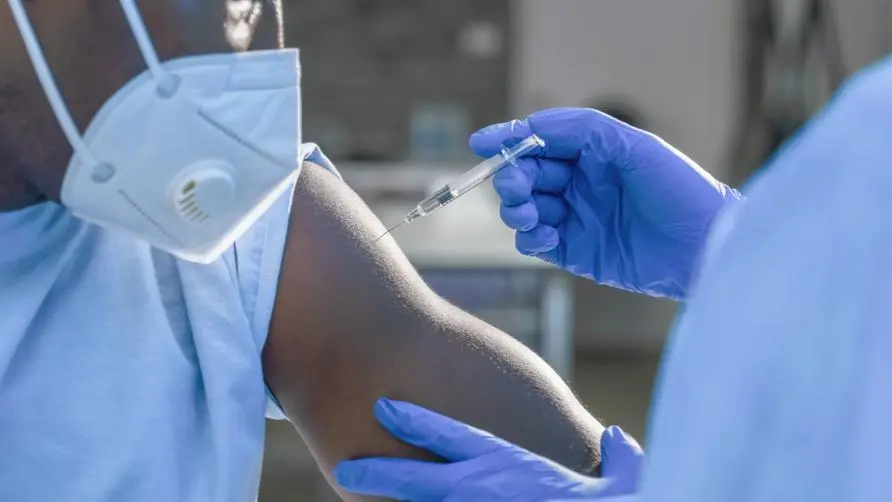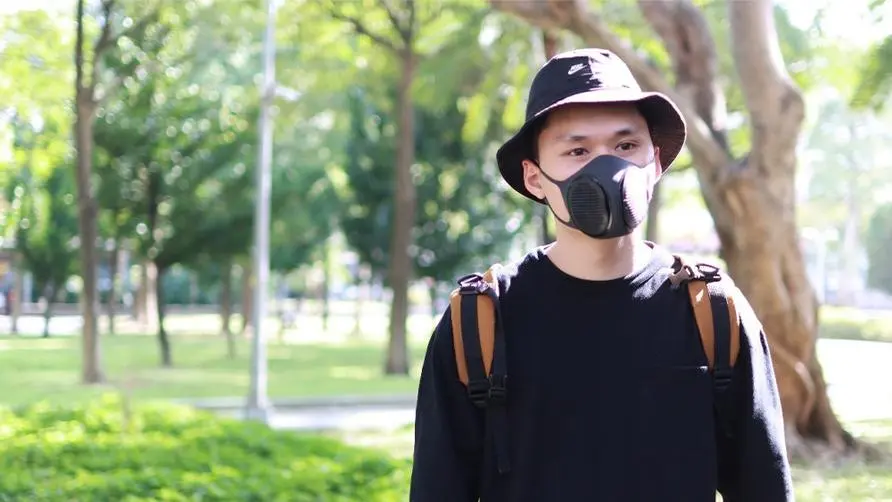The new coronavirus "uses the human body as a petri dish"! Are some monoclonal antibodies ineffective? Doctor: Vulnerable groups should receive bivalent vaccine

The competition is fierce and the evolution trend and potential risks of the new coronavirus have not been seen in a century.
In response to possible changes in emerging infectious diseases after the epidemic, the Taiwan Infectious Diseases Society held the “2022 Novel Coronavirus Epidemic and Prevention Seminar”. The introductor, Chairman Wang Fude, said that Taiwan has gained valuable experience and annual prevention drills since the 2002 SARS epidemic. , which has achieved remarkable results during the COVID-19 epidemic. With the global trend of epidemic prevention policies moving from strict clearance to coexistence with the virus, the command center also announced the relaxation of epidemic prevention regulations such as wearing masks. It seems that in the foreseeable future, people are expected to return to normal life.
However, the evolution of the virus continues. Whether it will gradually become “influenza” or set off another more threatening wave of epidemics is a future situation that countries are extremely concerned about and worried about. By then, effective vaccines and antiviral drugs will be important for response. .
Dr. Liu Boyu, director of the Department of Infectious Diseases at Taichung Veterans General Hospital, said at the meeting that Taiwan and abroad are facing a triple epidemic of the new coronavirus, RSV virus and influenza. The “Triple Epidemic” shows that the full liberalization of epidemic prevention measures has allowed the influenza virus to disappear in the past two years. The resurgence of the RSV virus may trigger a new wave of infection peaks in winter, and the rapid mutation and recombination of the new coronavirus must continue to be paid attention to.
“We must face reality. The new coronavirus will survive in human society for a long time. The site mutations of the virus occur almost at the speed of light. Humanity is facing a completely different game than before!” Dr. Liu Boyu pointed out that the new coronavirus affects humans and animals. Due to their common nature, various animal hosts such as mink, cats, dogs, and deer may be infected, causing the virus to continuously circulate between animals and humans, resulting in more mutations that can adapt to the environment.
Dr. Liu Boyu said that the adaptability of the new coronavirus far exceeds scientists’ estimates at the beginning of the epidemic. Due to the continuous accumulation of mutations in the S protein of the virus, the dominant strain changed from the original strain to the Omicron strain in just three years in a dizzying manner. In addition, long-term infection is also one of the reasons why the virus continues to evolve. The new coronavirus is like using the human body as a petri dish, accelerating and accumulating mutations within the human body, and evolving an “optimized” template to resist attacks by the human immune system.
Fortunately, through advanced genetic sequencing technology and rigorous public health surveillance data, we can determine that the virus is currently on a trend of increasing infectivity and declining hospitalization and death rates. Dr. Liu Boyu pointed out that the latest research shows that humans have experienced five waves of new coronavirus epidemics in the past three years, and by the fifth wave of Omicron, it seems that the symptoms have become milder and the severity rate has dropped. The challenge in the future is that the new coronavirus will persist for a long time. With the fuel of globalization and climate warming, the potential risk of triggering the next wave of emerging infectious diseases cannot be ignored.
The pros and cons of administering bivalent vaccines to prevent infection or severe death
While the new coronavirus continues to evolve, vaccine research and development and implementation policies are also being promoted in full swing. Dr. Li Meihui, director of the Department of Adult Infectious Diseases at the Ministry of Health Shuang Ho Hospital, said that the main types of vaccines for the new coronavirus include inactivated vaccines, viral vector vaccines, subunit vaccines, and mRNA vaccines. Viral vector vaccines (such as AZ, Johnson & Johnson) were the most popular vaccines in the world in the early stages of the epidemic. As viral site mutations continue to occur, the advantage of easy development and design of mRNA has gradually become more prominent. Judging from the current bivalent vaccine of original strain plus Omicron strain as the fourth dose of vaccine, although the protective effect against infection is no longer as good as the first and second doses, it can still see an increase in antibodies and significantly reduce severe illness and death.
Dr. Huang Lingru, attending physician at the Department of Internal Medicine at Taipei Veterans General Hospital, pointed out that the development of the epidemic has restricted the design and development of vaccine experiments. The current bivalent vaccine will obtain emergency authorization EUA in the second half of 2022, and the standard used is the data efficacy of neutralizing antibody concentration. Judging from the recent data of 300,000 cases in the United States, two additional doses of vaccine can effectively improve immune protection, and the longer the interval, the better the protection effect.
However, people’s willingness to be vaccinated continues to decrease as the number of doses increases, and this year’s Omicron strain seems to maintain the main transmission trend for longer than previous strains. Whether annual vaccination like influenza vaccine is needed in the future still depends on the evolution of the virus. .
Dr. Qiu Nanchang, former chairman of the Taiwan Pediatric Infectious Diseases Medical Association and current director of Ma Kai Pediatrics, said that vaccines are one of the best tools for epidemic control, although the third and fourth doses are no longer as effective as the first two in preventing infection. The pros and cons of “preventing infection” and “preventing severe death” should be considered. In addition, vaccination not only produces neutralizing antibodies, but also affects the immune response of the body’s T cells. Currently, the fourth supplementary dose approved by various countries is mainly mRNA vaccine. Although it has extremely rare side effects of myocarditis, considering the risk of severe illness in vulnerable groups and children after infection, it is still recommended that adults and children who are eligible for vaccination should receive the bivalent vaccine.
Is the role of monoclonal antibodies fading? The future direction of COVID-19 drug development
In addition to vaccination, scientists are also continuing to develop drugs against the new coronavirus, hoping to find a type of drug that has both therapeutic and preventive effects. Dr. Chen Baoyu, an attending physician at the Department of Internal Medicine at National Taiwan University Hospital, pointed out that at this stage, those who are in the early stages of infection and have risk factors for severe disease should still take antiviral drugs as much as possible. Once the disease progresses and requires oxygen or becomes severe, drugs such as steroids or immunosuppressants will be given. .
Dr. Chen Baoyu said that judging from the fact that about 91% of the deaths caused by Omicron were middle-aged and elderly people with chronic diseases and unvaccinated, preventive medication must consider whether they have been infected before, and treat high-risk patients early, and adopt " “Personalized” medication can achieve the best therapeutic effect.
Dr. Guo Jianfeng, director of the Department of General Internal Medicine and Infectious Diseases at Mackay Memorial Hospital, explained that there are two main directions for research and development of drugs for the new coronavirus. One is to prevent virus replication, and the other is to enhance antibody responses, such as protease inhibitors and monoclonal antibody drugs. However, in an era where viruses are constantly mutating, the role of monoclonal antibodies is gradually weakened, and the conditions for applying for EUA for COVID-19 drugs will become increasingly stringent, and drug development is expected to still face many obstacles.
Dr. Guo Jianfeng pointed out that due to the continuous mutation of the virus or drug resistance, the effectiveness of monoclonal antibody drugs in preventing virus replication will be weakened. In some cases, it is necessary to use two or more monoclonal antibodies to avoid failure. Scientists are developing how to prevent the virus from replicating. Similar to the S2H97 “super antibody”, drugs can be developed that can produce multiple times more neutralizing antibodies. In addition, FP-025 asthma drug, AD17002SC nasal spray drug and even the new coronavirus drug Niu Zhangzhi, a traditional Chinese medicine, are all considered to have therapeutic potential, and only valid data must be obtained through clinical trials before they can be approved for use.
Secretary-General Huang Jianxian, director of the Department of Infectious Diseases at Shin Kong Hospital, said that vaccination definitely has a certain degree of protection, so the timing of vaccination is also very important. Vaccination is not required for three months after infection, but vaccinations should be continued thereafter. After vaccination, it is indeed protective in an environment with a low viral load. Although you may be infected in an environment with a high viral load, it can still prevent severe illness and death. Therefore, Secretary-General Huang Jianfeng suggested that Taiwanese should still get vaccinated in due course.
Source:
Further reading:





